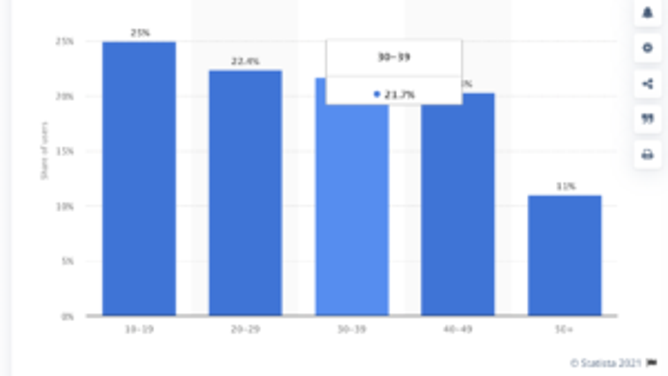TikTok: The Silent Abuser
TikTok masquerades as a user-friendly social media app with funny dances and goofy filters. Every TikTok user looks to be having a swell time. And with so many frightening things going on around the world, who wouldn't want to join these hoots? At least one billion users worldwide do and have signed up for an account
However, TikTok is hardly the pleasing distraction it purports to be. Instead, the platform is a trap from which users may never escape.
This week, the New York Times engaged in journalism and met with a whistleblower, who gave the publication a document called "TikTok Algo 101," which reveals a not-so-top-secret operation that takes advantage of users' emotional instabilities for profit.
The document shows that TikTok puts all of its resources into what it calls the "ultimate goal" of infiltrating people's minds to determine user value, long-term user value, creator value, and platform value.
In essence, TikTok has built a business model around how much time a user spends on its platforms and how frequently he or she returns. Based on its findings, TikTok stooges then stop at nothing to make each user addicted to its service.
Once TikTok finds a user's individual weaknesses -- such as, per a report, #breakup, #sad, #depression -- it latches on to build a customized feed to exploit that person's emotions.
So if you have a TikTok account, know that its algorithm finds your vulnerabilities and then uses them to keep you coming back for more. In doing so, TikTok strips away your independence because you relinquish control over your satisfaction to the mercy of likes, comments, and playtimes without realizing it.
"This system means that watch time is key. The algorithm tries to get people addicted rather than giving them what they really want," says Guillaume Chaslot, the founder of Algo Transparency.
On average, TikTok learns the interests of one account user in under two hours. According to the document, TikTok content managers have access not only to publicly shared content but to the content that friends privately upload to the platform to share with each other, making TikTok's algorithm more powerful than the programs that other social media apps use. Moreover, TikTok excludes the end-to-end encryption that apps like WhatsApp offer. In a group of filth, TikTok stands as the filthiest.
TikTok bombards users with content that it knows they likely won't be able to ignore. And like all satanic blueprints, TikTok especially feeds on the weak: 25% of TikTok's active users in the U.S. are people aged 10-19:

"I think it's a crazy idea to let TikTok's algorithm steer the life of our kids," Chaslot says.
"Each video a kid watches, TikTok gains a piece of information on him. In a few hours, the algorithm can detect his musical tastes, his physical attraction, if he's depressed, if he might be into drugs, and many other sensitive information.
"There's a high risk that some of this information will be used against him. It could potentially be used to micro-target him or make him more addicted to the platform."
TikTok engineers built an algorithm that manipulates vulnerable people -- many of them minors -- and then emotionally abuses them. And that's exactly what's happening here: emotional abuse.
If TikTok were a person, we'd hope to soon find that manipulative coward in the pavement somewhere. Unfortunately, no such scapegoat exists. No single person controls TikTok's feed. Instead, a computerized system geared to outsmart human beings does.
You have to wonder how anyone who grew up online can keep their sanity. Maybe they can't.
It's no wonder when you go out in public -- and, hopefully, you still do -- that teenagers either have their heads buried in their phones or have a miserable look on their faces. There is definitely a correlation between the two. A scientific algorithm has baited young people with promises of happiness only to amplify their misery for monetization.
Social media addiction is just as crippling as any other type of addiction. In some ways, it's actually more ominous. There are warning signs and support groups for other addictions such as alcohol, drugs and gambling. However, very few people ever mention social media addiction. In fact, peers and idols often encourage people to join them on social platforms like TikTok and look down on those who refuse. As a society, we are openly promoting and normalizing poison.
What's happening on TikTok is serious, but no one is doing anything about it. Why is that? Do the right people not know? Or have tech companies built algorithms so indestructible that no one can do anything to stop them? I fear it's the latter and that we will continue to feed these ghouls with our time and our minds.